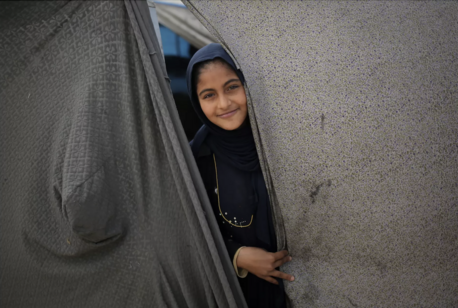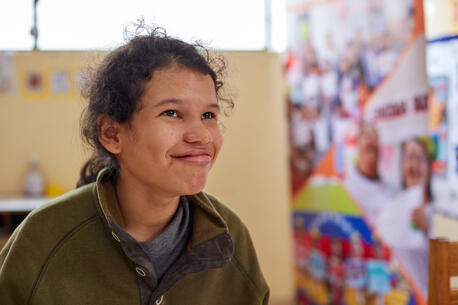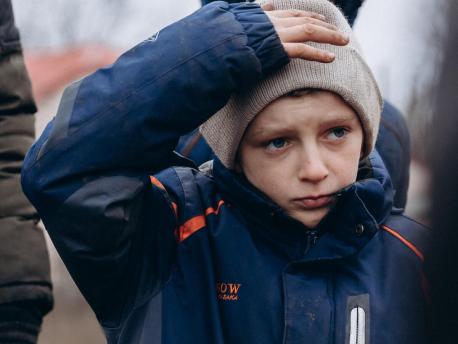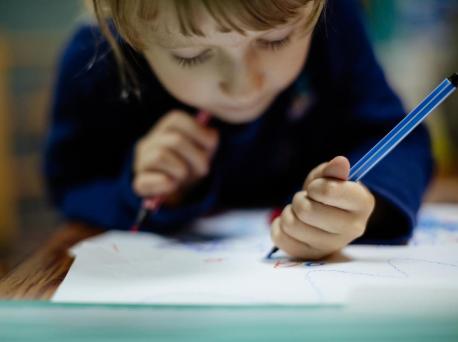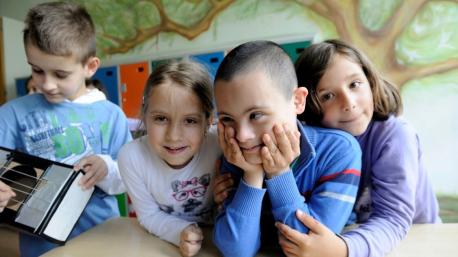
HOW TO HELP
CHILDREN WITH DISABILITIES
UNICEF includes children with disabilities in all facets of its programming. And UNICEF won’t stop until every child is healthy, educated, protected and respected.
UNICEF's fight for equality and inclusion
UNICEF believes that all children, regardless of ability, have the right to reach their full potential.
Children with disabilities are one of the most excluded and marginalized groups and often face multiple challenges in realizing their human rights. There are 240 million children living with disabilities in the world. Half of them are out of school. Many are invisible, hidden by their families and abandoned by their governments.
In low-income countries, 95 percent of children with disabilities lack access to wheelchairs, hearing aids, glasses and other assistive technologies.
Guided by the Sustainable Development Goals (SDGs) and aligned to the Convention on the Rights of the Child (CRC), the Convention on the Rights of Persons with Disabilities (CRPD) and its Disability Inclusion Policy and Strategy, UNICEF includes children with disabilities in all facets of its programming.
The goal: to ensure that every child has the support they need to be healthy, educated, respected and protected.
Removing barriers so kids can flourish
In partnership with governments, UNICEF implements inclusive programs and services that promote the participation of children with disabilities in society.
Integrating supplies into regular programs through market-shaping and procurement mechanisms, UNICEF has rapidly scaled up provision of assistive devices and products, reaching hundreds of thousands of children with disabilities around the world.
In 2022, UNICEF disability-inclusive development and humanitarian programs reached 4.5 million children with disabilities across 142 countries. UNICEF and partners continue to focus on eliminating stigma and promoting the inclusion of children with disabilities and their families in society.
The costs of exclusion
A growing body of research suggests that the costs of exclusion are high. Fortunately, evidence also demonstrates that there are effective ways to ameliorate these costs.
And when absent from official statistics, children (and adults) with disabilities remain politically and socially "invisible" — often increasing their marginalization and exposure to rights violations.
UNICEF invests in systems that produce disaggregated and comparable data, and collect and monitor evidence related to the participation of children with disabilities. Learn more: Read the January 2022 report, "Seen, Counted, Included: Using data to shed light on the well-being of children with disabilities."
Special Olympics – UNICEF USA partnership
UNICEF USA partnered with Special Olympics in 2015 to advance opportunities for children with intellectual and developmental disabilities, to promote their participation and inclusion in society and enable communities to learn and benefit from the acceptance of differences. Learn more.
